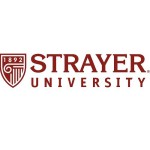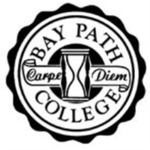 If you’re interested in Computer Forensics, you’ve come to the right place. This field is expected to see rapid growth, and high salaries for years to come. Many Information Technology, Computer Forensics and Cyber Security positions currently sit empty, because there’s not enough qualified applicants to fill them. The Bureau of Labor Statistics found the median salary for computer forensic examiners was around $75,660 in 2012, and the lowest 10 percent earned as little as $43,190, while those in the highest 10 percent earned $119,940 or more annually. Job projections expect over 120,000 new jobs. A Bachelor’s in Computer Forensics is a great way to start, but what program should you choose? Here we’ve ranked top online Computer Forensics Bachelor programs based on flexibility, affordability, online academic quality (student faculty ratio and the percentage of students taking online courses), special features and more.
If you’re interested in Computer Forensics, you’ve come to the right place. This field is expected to see rapid growth, and high salaries for years to come. Many Information Technology, Computer Forensics and Cyber Security positions currently sit empty, because there’s not enough qualified applicants to fill them. The Bureau of Labor Statistics found the median salary for computer forensic examiners was around $75,660 in 2012, and the lowest 10 percent earned as little as $43,190, while those in the highest 10 percent earned $119,940 or more annually. Job projections expect over 120,000 new jobs. A Bachelor’s in Computer Forensics is a great way to start, but what program should you choose? Here we’ve ranked top online Computer Forensics Bachelor programs based on flexibility, affordability, online academic quality (student faculty ratio and the percentage of students taking online courses), special features and more.
1) University of the Potomac
Potomac is a for-profit university based out of Washington, DC, and Vienna, Virginia. The school offers certificates, Associates, Bachelors, and Graduate program degrees in accounting, international business, government contract management, business, cyber security and policy, network security management, and several other disciplines. It was founded in 1991. The school serves over 200 students on campus, but is designed to allow online study. Qualified students can earn their degree in as little as 18 months. Potomac has an open enrollment policy and all classes offered online or in a hybrid on-campus/online delivery format.
Potomac offers a Bachelor of Science in Cyber Security and Policy that can be earned entirely online, or in a hybrid format. Graduates will be able to design networks that are secure, countermeasures to intrusion, and learn a wide variety of security tactics in this rapidly expanding field. Students can choose a concentration from Government Contract Management, Healthcare Management, Information Management, International Business and Management. Required Cyber Security courses include Cyber Law, Computer Systems Technology, Survey of Operating Systems, Introduction to Data Communication and Networking and more. This program requires 120 credit hours. In 2016-17, full-time beginning undergraduates at Potomac paid $13,884 in tuition.
2) Norwich University

Norwich was founded in 1819, making it the oldest private military college in America. It’s based out of Northfields, Vermont, and confers 29 majors through six academic divisions. Norwich is the first of America’s six traditional military colleges, and is called the “Birthplace of ROTC.” Over 4,200 students attend Norwich, which has a 14:1 student-to-faculty ratio. Norwich has extensive online offerings to students worldwide. Recently, Norwich received grants from the National Security Agency to train the cyber security professionals of the future. Its motto is “I Will Try.” In a 2014 survey of alumni, 93% recommended Norwich’s online wing.
Norwich offers a Bachelor’s in Cyber Security. This program lets students choose a focus, either from computer forensics and vulnerability management or information warfare and security management. In the Computer Forensics concentration, students take courses like Cyber Investigation, 6 credits in Vulnerability Testing, Network Forensics, Malware Forensics and more. There is a 30 credit entry requirement for this program. The curriculum builds off of general education requirements, core cyber security courses, electives and project-based courses. Students are also encouraged to transfer in applicable credits. Topics covered include national security policy, offensive and defensive information warfare, penetration testing, and malware forensics. Students will build significant critical thinking, research and analysis, ethical decision-making, and oral and written communication skills through this program. In 2016-17 tuition was $37,534 for all students.
3) Strayer University

Strayer is an online, for-profit school with over 42,000 online students. It was founded in 1892, but became its modern incarnation in 1998, after gaining university status. It offers undergraduate and graduate degrees in accounting, business administration, criminal justice, education, health services administration, information technology and public administration. Strayer makes a point of liaising with 300 out of the Fortune 500 companies to help their faculty understand what top employers are looking for from new employees. The school has evolved parallel to the growth of the Internet. Enrollment ballooned between 2001 and 2010, in large part due to a majority of Strayer’s students earning their degrees entirely online.
Strayer’s online Bachelor of Science in Computer Security and Forensics is geared towards helping students work in criminal justice, through an understanding of law enforcement, digital security, effective communication skills and much more. Courses include Computer Crime Investigation, Information Security, and Networking Security. This program costs $1,450 per course, and there are 40 courses needed to complete it. Its next start date is April 2nd.
4) American Military University

The American Military University System is an online, for-profit institution that’s part of the American Public University System. It was established in 1991, and operates from Charles Town, West Virginia. It has an open enrollment policy. Over half its student body in 2016 said they were actively serving in the military. Over 48,000 students attend the school, which has a 19:1 student-to-faculty ratio. APUS offers associate, bachelor’s and master’s degrees, in addition to dual degrees, certificate programs and learning tracks. The school has been named a “Best for Vets College” by The Military Times each year since 2015. It tied at 92nd in U.S. News & World Report’s ranking of Best Online Bachelor’s Programs.
AMU’s Bachelor of Science in Criminal Justice has a concentration in Digital Forensics. The program gives students significant theory and practice on forensic science and its applications throughout. Students will be prepared to work in complex criminal justice positions. This program costs $270 per credit, or $250 with a military grant. It requires four years of full time study, but can be taken entirely online with monthly course starts. Up to 90 applicable credits may be transferred in (120 total required for the program). Digital Forensics courses include Computer Forensics, Cybercrime, and a wealth of courses targeting different aspects of digital investigations.
5) Champlain College

Champlain is a private, undergraduate college headquartered in Burlington, Vermont. It was founded in 1878. Champlain offers a plethora of undergraduate/online undergraduate courses, online certificate/degree programs and master’s degree programs in over 80 subjects. The school has over 4,700 students from all over the world, and a 16:1 student/faculty ratio. Champlain was called a “Top-Up-and-Coming School” by U.S. News & World Report’s America’s Best Colleges in 2014. Then in 2017, its online programs were ranked in USNR’s best of the year list. If you choose to continue your education, it’s a great place to do son in computer science and web development. Champlain offers completely online graduate programs in Managing Innovation & IT, Emergent Media, Digital Forensic Management and Digital Forensic Science.
Champlain offers a BS in Computer Forensics. The format of delivery is 100% online instructor-led courses with no set class times and 24/7 access to classes. It comes in three specializations: Computer Forensics & Digital Investigations, Cybersecurity, or Forensic Accounting. Most courses are delivered in an accelerated, 7-week format (some come in 15-week formats), which is part of its inclusion on this ranking. There are two 7-week terms per semester, and three semesters in the year. This program requires 120 credits, and up to 90 applicable credits can be transferred. Standout courses include Malware Forensics, Operating System Forensics, Law of Searching & Seizing Digital Evidence, among many others. This program costs $640 per credit hour.
6) Bay Path University

Bay Path is a private university that was founded in 1897, and based in Longmeadow, Massachusetts. Bay Path offers all-women Bachelor’s degree programs (on-campus and online), co-educational master’s degree programs (on-campus and online) and Occupational Therapy Doctorate program for men and women online. It’s a member of the Cooperating Colleges of Greater Springfield, an eight-college consortium. Most of its programs tend to focus on professional and/or arts and science degrees, and are aimed at empowering the education and promotion of women in the workplace. Over 3,200 students attend Bay Path, which offers an 11:1 student-to-faculty ratio.
Bay Path offers a Digital Forensics (Cyber Security) BS. It can be taken on campus, online, or through a one day a week delivery format. Students will learn the ins and outs of investigating identity theft, cyberbullying, data breaches, child abuse, and more. You’ll learn how to use leading digital forensic software, do work-study and internships at external organizations to enhance your experience, and gain practical skills in computer forensics, incident response, IP theft and more. Students will be prepared to enter jobs as Cyber Investigators, Secure Systems Auditors, Digital Criminologists among many other blossoming positions. In 2016-17, Bay Path tuition was $32,739 for full-time beginning undergraduates.
7) Keiser University

Kaiser is a non-profit, private university operating from Fort Lauderdale, Florida, and South America. It was founded in 1977, by Evelyn Keiser and her son Arthur. Today, almost 19,700 students attend Keiser, which offers a 14:1 student-to-faculty ratio, on campus, online, and at satellite campuses throughout Florida. It’s been accredited by the Commission on Colleges of the Southern Association of Colleges and Schools to convey certificates and degrees at the associate, baccalaureate, master’s and doctoral levels. Community College Week has ranked its associate programs in computer and information sciences 11th in the nation.
Kaiser offers a B.S. in Cyber Forensics/Information Security. The program was designed as a completion program for students who have earned an Associate degree in computer science related fields. Learning goals include how to identify system/security weaknesses, and propose solutions to mitigate and stop attacks by cyber criminals. Students will also learn the legal framework for investigating and prosecuting cyber criminals, including demonstrating digital forensic evidence in court. Sample classes include Cyber Crimes, White-Collar and Economic Crime, Professional Writing, Management Information Systems, Digital Media Forensics and much more. Students will start with 15 credit hours of pre-requisite courses, before completing 60 upper division credit hours. In 2016-17, tuition for Keiser was $18,368 for full-time beginning undergraduate students.
8) DeVry University

DeVry is a for-profit university known for its online programming. It was founded in 1931, and became DeVry University in 2002. It serves approximately 27,000 students through a number of regional campuses (approximately 55 locations across 18 states) and the web. It has partnered with the NFL and MLB, and worked closely with Democratic lobbyist Heather Podesta. Derry offers Associate’s, Bachelor’s, Master’s and Graduate Certificates through colleges of Business & Management, Graduate Management, Engineering & Information Sciences, Health Sciences, and Arts & Sciences (which covers Education, Technology and more).
Derry offers Computer Forensics and Digital Forensics degree specializations. The former is a specialization of a Computer Information Systems degree, and the latter is a specialization in DeVry’s Justice Administration degree. Sample Computer Forensics courses include Digital Crime: Evidence and Procedure, Computer Ethics, Digital Forensics I and II and Information Systems Security Planning and Audit. Digital Forensics courses include Architecture and Operating Systems (with lab) and Principles of Information Systems Security. In 2016-17, tuition was $19,948 for beginning full-time undergraduate students.
9) Pace University

Pace is a private school founded in New York in 1906. It has a campus in Manhattan, and two in Westchester County. It also runs a women’s justice center in Yonkers, a city public school (Pace University High School), and two business incubators. It began as a business school, and now offers undergraduate and graduate degrees in Health Professions, Arts and Sciences, Business, Education, Computer Science and Information Systems, Fine Arts, and more. Over 13,200 students attend Pace, and it has a 15:1 student-to-faculty ratio. In 2014, Pace was ranked 180th among national universities by U.S. News & World Report.
Pace offers a BS in Professional Technology Studies in two concentrations: Computer Forensics or Business Technology Leadership. The Computer Forensics degree prepares students for jobs in law enforcement, government, or private companies and can be taken 100% online. Students will gain significant understanding and skills in information technology, criminal justice and cyber crime, and build expertise in technical forensic computing investigation. In the Business Technology Leadership concentration, students build management skills to work in a business IT department. Computer Forensic courses include Mobile Device Forensics, Terrorism and Society, Global Networking Technology, and much more. Depending on students’ college experience, they can often complete this program in “two and one-third years by taking 2 courses per semester.” Students are also able to take a course per term, or take semesters off with the goal of returning to finish. In 2016-17, tuition was $42,772.
10) Robert Morris University

RMU is a private, doctoral university in Moon Township, close to Pittsburgh, Pennsylvania. It was founded in 1921. RMU lets student access over 60 bachelor’s degree programs and 20+ master’s and doctoral programs through schools of Business, Education and Social Sciences, Nursing and Health Sciences, Communications and Information Systems, and Engineering, Mathematics and Science. Currently the school serves nearly 5,200 students, and offers a 15:1 student-to-faculty ratio. It was ranked 176th in the United States in U.S. News & World Report’s rankings for 2018.
RMU offers a B.S. in Cyber Forensics and Information Security. It requires 39 credits and can be taken entirely online. Sample major courses include many programming languages courses, Cyberlaw, Mobile Forensics, IT Security and IT Governance. Students also choose an area of interest (Information Sytems or Mobile Forensics and Security) in the program and take corresponding electives. This program was ranked No. 6 in the nationwide ranking of “The 12 Best Online Bachelor in Information Assurance & Security Degree Programs” by The BestSchools.Org and No. 4 in their 10 Best Online Bachelor’s in Information Assurance and Security Degree Programs. In 2016-17, full-time undergraduate tuition was $28,250 at RMU.

